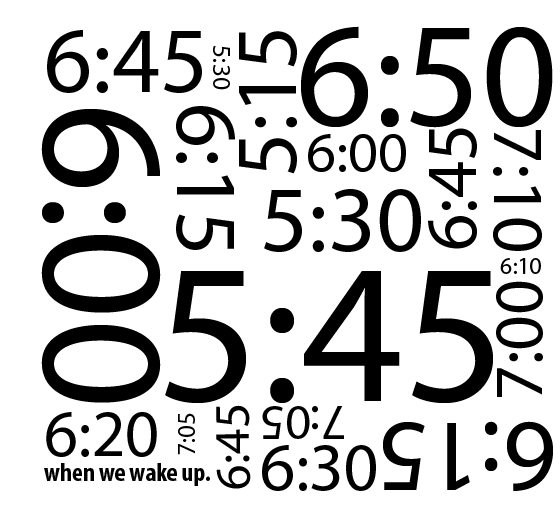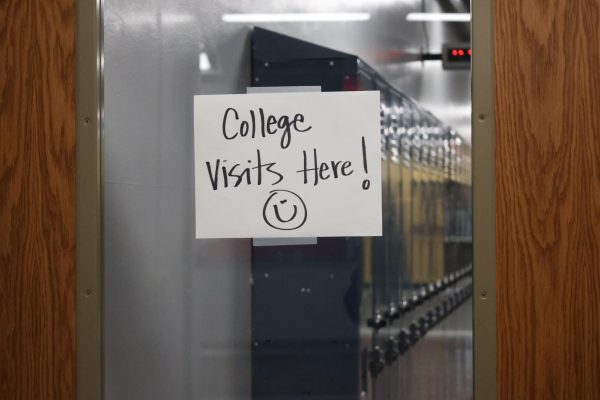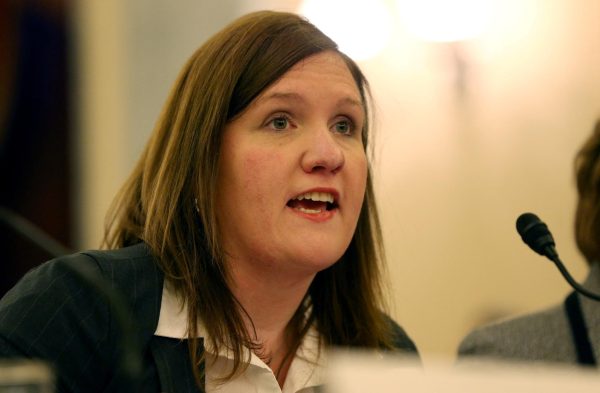Smart Start
Ann Arbor Public Schools Propose Later Start Time for All High Schools In The District
7:30 a.m. ANN ARBOR, MICHIGAN
The parking lot at Community High School is almost full and the sun has yet to come over the horizon. Students slowly migrate across the asphalt toward the north west door with an all too familiar tired daze lining their faces. Junior Katy Pasquariello is one of the blank faces that has been up since 6:30 a.m. she has been running on six hours of sleep every weekday since Sept. 6. The exhaustion of high school seemed to be an unavoidable circumstance for all students in Ann Arbor Public Schools until a few weeks ago when an email survey was sent out to all students, parents, and teachers regarding the possibility for a later start time. With the subject line, “Assign your stars.”
The email was a survey about the start times of their schools. Their goal was to hear concerns and benefits of a possible later start time as well as any other thoughts and questions this topic may have brought up.
The past three years, AAPS has been taking steps to provide the sleep that teens need to be more functional and productive during school hours. These steps include the pushing start times for all high schools back to 7:45 a.m., moving the bus schedule to start at the earliest 6:40 a.m. rather then 6 a.m., as well as offering a full set of online classes to allow students to have a more flexible schedule. They are continuing to take steps to further their research, including this survey, and adapting the high school schedule to benefit AAPS students. This effort is admirable, but the question still remains: are these changes really necessary?
“People have work, people have after school activities,” Pasquariello said. Her day is filled with around six hours of school, four to five hours of work at Noodles and Company, and around of two hours on homework. It’s no lie, the lives of a high school student have become filled with school, sports, and other activities.
The scientists providing the research for later start times are aware of these issues but they believe the means of starting school later out weigh the odds of the “logistical issues” filling teens day-to-day lives.
“Sports are important; other after school activities are important; child care issues are important; and transportation issues are all important, but you first have to understand that having tenagers start earlier than 8:30 a.m. is really a public health issue.” said Dr. Wendy Troxel, a clinical psychologist and a senior behavioral and social scientist at the Rand Corporation. “It’s harmful to teenagers mental and physical health.”
The biology of human sleep patterns temporarily shift during the time of adolescence, specifically the excrement of the hormone melatonin, which triggers the brain to fall asleep, is delayed. According to Dr. Troxel, melatonin in adults and young children is released around 9:00 p.m. In teenagers however, melatonin is not released until around 11:00 p.m.
“If you can’t go to bed before 11:00 p.m. and you have to wake up at 6:00 a.m. it’s physically impossible to even get the bare minimum of eight hours,” Troxel said. “That’s just the bare minimum, the recommendation is eight to ten. Most teenagers aren’t coming close to that window, and when teenagers aren’t getting the sleep they need their bodies, their brains and their behavior suffers.”
“I really just don’t see the benefit,” said Ed Kulka, a math teacher at Community for over 20 years. “I think that people who struggle with sleep deprivation they are going to struggle with it no matter what [the start time] is, some people just have a hard time falling asleep. When we start at a later time, there is just going to be even less of a rush to get to bed early.”
Many people in Ann Arbor feel the same way that Kulka does: if this schedule has worked for so long then why change it? Families’ lives have been built around an eight to three school day, so the question becomes, Are the health benefits truly more important than the logistical problems.
“Change is always hard, but once you understand the science you really can’t turn back because we are doing teenagers harm by starting school too early,” Dr. Troxel said. “The health risks of sleep deprivation are many and I could go on and on.”
According to Dr. Troxel the main risk of sleep deprivation is with your mental health. Lack of sleep is associated with an increase of depression as well as substance abuse.
Many teenagers who are sleep deprived are using large quantities of caffeine, which may be helpful in the moment, but will change your sleep cycle. “Your biology’s telling you to start the cycle later and you’re taking high quantities of caffeine throughout the day just to stay awake,” Dr. Troxel said. “Then you can’t fall asleep at night because you of your biology and caffeine.”
On average Pasquariello has some type of caffeinated beverage three to four times a week. That might not seem like much, but many students need to have caffeinated beverages every day just to get by. “This large consumption of caffeine is leading to a tired-but-wired population of teenagers,” Dr. Troxel said. “Teenagers are learning at a very young age that they have to medicate just to get through the day. Which sends a pattern that also increases the risk for other substances.” According to Troxel, teenagers who are consuming large amounts of caffeine are at an increased risk of using substances such as alcohol and marijuana.
On top of all of the mental health risks directly linked to current school start times, there is also an abundance of negative physical repercussions. “It’s proven that kids who don’t get enough sleep are at an increased risk of becoming obese, getting diabetes, heart disease, and motor vehicle crashes,” Dr. Troxel said.
If starting school later enables us to prevent suicide, diabetes, heart disease and motor vehicle crashes, then why haven’t we done it?
“Sports is a big thing, and I don’t know how changing the start time will affect sports,” Kulka said. This is not only the thoughts of a high school math teacher, but also a concern that is brought up by many in the community.
Often when Dr. Troxel talks to communities about the dangers of sleep deprivation, one of the overhanging concerns about changing the schedule is sports. “Sleep loss is associated with an increase of sports-related injuries,” Dr. Troxel said. “As well as longer recovery times, and slower reaction times all these things that are so critical for athletes.” According to Dr. Troxel one of the major concerns from the general public about a later start time is athletes are going to ruin their competitive edge. However, studies performed by Dr. Troxel and her colleagues have shown that when Elite teams have prioritized sleep the athlete’s performance has greatly improved.
For Dr. Troxel another major concern is drowsy driving. “Teenagers are among the highest risk groups for being drowsy drivers,” Dr. Troxel said. “One studied showed that motor vehicle crashes in a district with later start times were reduced by 70 percent.” For many teenagers high school is the first time they are able to drive; inexperienced drivers and delayed reaction times associated with drowsy driving can be a fatal combination.
Pasquariello, Kulka, and Troxel all agree that sleep is important. However that is where the agreement ends, Troxel says that the current school schedule is fighting against teenagers biology. While Kulka claims that society is built around the current start and end time. Pasquariello says that students lives are already too hectic and pushing school start times back would take away from their daily lives. So who is right?
This issue will remain unresolved for the time being, results from the survey have not been released and Superintendent Swift chose not to speak with The Communicator.














